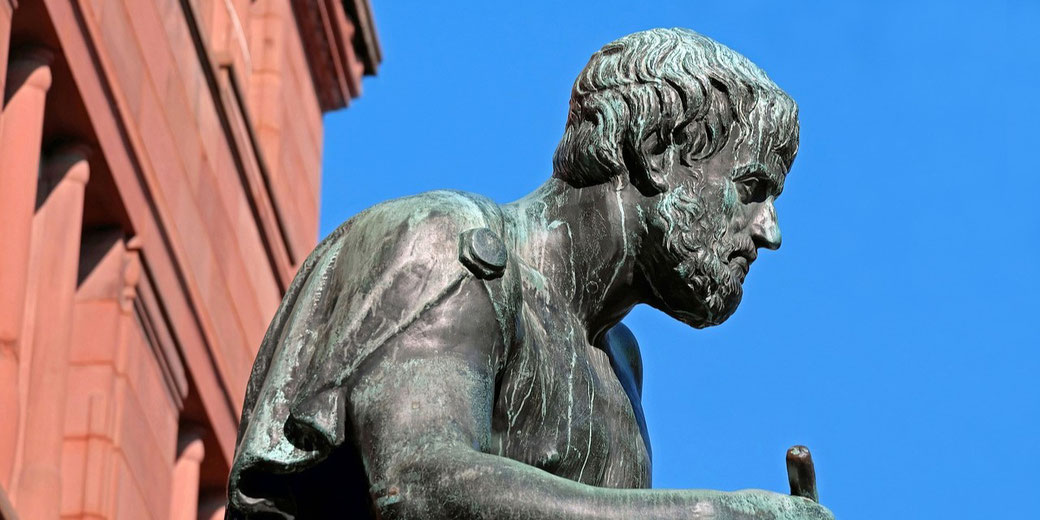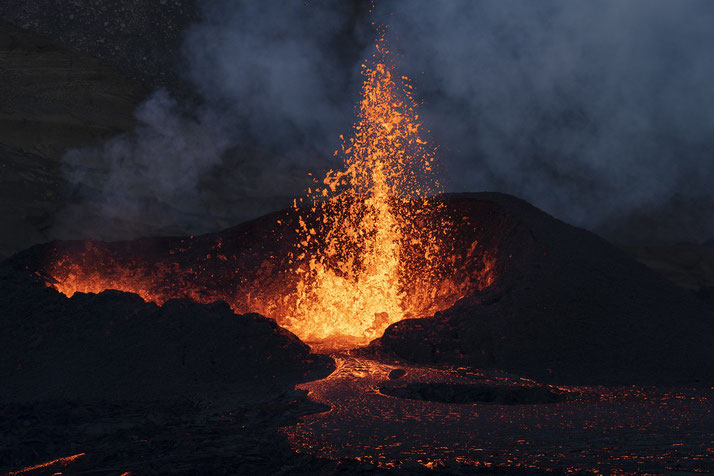Empedocles: the Greek philosopher who jumped into a volcano to prove that he was a god

Empedocles was a fascinating ancient Greek philosopher, poet, and scientist whose life was marked by both impressive achievements and quirky eccentricities.
He was a man who was deeply concerned with understanding the natural world and the mysteries of the universe.
Empedocles is best known for his theory of the four elements and his belief in the transmigration of souls, but his life story is full of intriguing details.
From his supposed ability to perform miracles to his bizarre fashion choices, Empedocles was a figure who both captivated and puzzled his contemporaries.
Early life
Empedocles was born in the city of Akragas (now Agrigento) in Sicily.
He was a member of a wealthy and influential family, and received an excellent education in philosophy, mathematics, and science.
He was particularly interested in the natural world, and spent much of his life studying and exploring the mysteries of the universe.
Unfortunately, we do not know much else about his life, as there are very few primary sources of information about Empedocles.
Those that remain are fragments of his own poetry, as well as references to him in the writings of other ancient Greek philosophers.
Thankfully, despite knowing little about his life, we do know quite a bit about his beliefs from these sources.
Theory of the four elements
One of Empedocles' most impressive discoveries was his theory of the four elements.
Empedocles believed that the universe was composed of four basic elements: earth, air, fire, and water.
These elements were not just physical substances, but also the underlying principles that governed the behavior of everything in the universe.
According to Empedocles, the four elements were eternal and unchangeable.
They were not created or destroyed, but instead were constantly mixing and separating to create the diverse range of objects and phenomena that we observe in the world around us.
Empedocles believed that the four elements had specific properties and characteristics that determined their behavior.
Earth was heavy and stable, while air was light and mobile. Fire was hot and dry, while water was cold and wet.
He also believed that the four elements could combine in different proportions to create all the different substances and objects in the world. For example, a combination of earth and water would create mud, while a combination of air and fire would create heat.
In addition to their physical properties, Empedocles believed that the four elements were also associated with different emotions and temperaments.
Earth was associated with lethargy and sluggishness, while air was associated with quickness and lightness. Fire was associated with anger and passion, while water was associated with calmness and tranquility.
Empedocles also believed that the four elements were constantly in motion, and that their interactions could create natural phenomena such as earthquakes, lightning, and storms.
He believed that the movements of the elements were driven by two opposing forces: love and strife. Love brought the elements together, while strife drove them apart.
His thoughts on souls
Empedocles also believed in the transmigration of souls, which is the idea that after death, the soul moves from one body to another.
He believed that the soul was immortal and that it went through a cycle of reincarnation, passing through many different forms of life, including animals and plants, before eventually returning to a human body.
He also believed that the soul had a memory of past lives and experiences, and that this memory was carried over from one life to the next.
He believed that the soul could be purified and elevated through a process of spiritual discipline, which involved balancing the four elements and overcoming the negative emotions and desires that bound the soul to the cycle of reincarnation.
Empedocles' ideas about the transmigration of souls were not unique to him, but were a common belief among ancient Greek philosophers and religious traditions.
His emphasis on the importance of spiritual discipline and purification, however, was an important contribution to the development of ancient Greek philosophy and spirituality.
The strange circumstances of his death
There are different versions of Empedocles' death, and one of them involves the idea that he believed he was a god.
According to this version, Empedocles had gained a great following and had come to believe that he was divine. He had also become increasingly reclusive and distant from his followers.
In this version of the story, Empedocles decided to perform a final act that would demonstrate his divinity to his followers.
He invited them to gather on the top of Mount Etna, where he announced that he would jump into the crater and ascend to the heavens, leaving his earthly body behind.
Empedocles then leapt into the fiery pit, but his body was not consumed by the flames. Instead, it was thrown back out of the volcano by a sudden eruption, and his followers discovered his sandals lying at the edge of the crater.
They realized that Empedocles had not become a god, but had instead perished in his attempt to transcend his mortal existence.

Empedocles' legacy
Empedocles' legacy continues to be felt today in many fields of study.
His emphasis on the importance of observation and experimentation in scientific inquiry has influenced generations of scientists and researchers.
His belief in the interconnectedness of all things in the universe has also had a lasting impact on philosophy and spirituality.
What do you need help with?
Download ready-to-use digital learning resources
Copyright © History Skills 2014-2025.
Contact via email
With the exception of links to external sites, some historical sources and extracts from specific publications, all content on this website is copyrighted by History Skills. This content may not be copied, republished or redistributed without written permission from the website creator. Please use the Contact page to obtain relevant permission.





